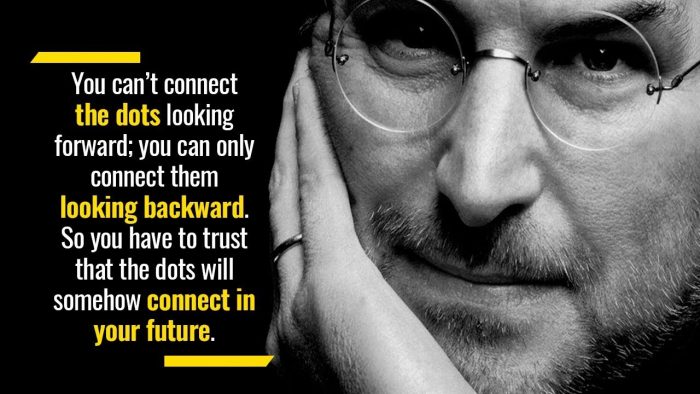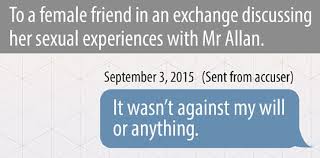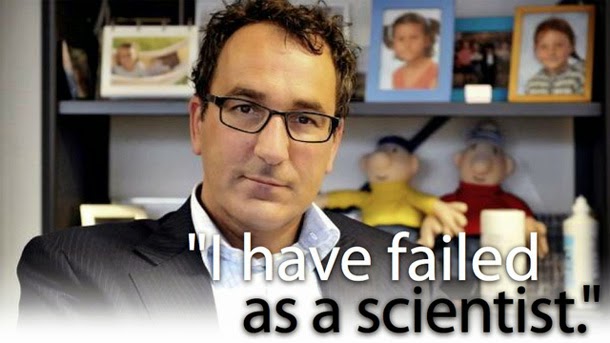
I Got Fired From Apple and it Changed My Life – Steve Jobs
Page Description
Explore ‘Epilogue,’ a page that examines the significance of concluding sections in literature and narratives, offering insights into how they provide closure and reflect on the story.
Epilogue: A Call for Reflection on Justice and Society
This page invites you to reflect on the patterns that emerge, patterns that resonate not only through the case of Liam Allan but also through the broader issues explored on this website. The injustice Liam faced is a stark reminder of a world turned upside down, where a young man with no history of criminal activity finds himself entangled in a case that should never have happened. His story reveals a double paradox: a system that undermines fair opportunity while marking him with an unjust reputation – one that only barely escapes being sealed for life.
The bundle of documents we present exposes the same recognisable pattern of systemic flaws, raising crucial concerns about the integrity of the judicial and police systems. These are not mere abstract problems but real-life consequences that affect individuals of good character who are wrongfully crushed by the very systems meant to protect them.
In this epilogue, we challenge you to consider the highlighted points in a wider context. The case of Liam Allan is not an isolated incident but a symbol of what can happen when decision-making systems fail. His case came dangerously close to becoming another miscarriage of justice, simply due to sheer incompetence. In an extraordinary twist of fate, prosecutor Jerry Hayes intervened at the last moment, preventing a life-altering mistake.
Similarly, Diederik Stapel’s massive academic fraud, carried out over years, highlights another facet of systemic failure. Despite widespread rumors and whistle-blowing, the fraud continued unabated, with the truth only coming to light through the courage of a few determined individuals.
These cases – Liam Allan’s, Diederik Stapel’s, and others – demonstrate that the very systems we rely on are fragile. Our society, often blind to its own shortcomings, allows these failures to persist. As with the notary who “drops stitches,” as seen in the VRT Panorama broadcast, the justice system too often falters, leaving gaping holes that should never have existed.
In the end, this epilogue serves as a reminder: the halo of perfection surrounding police and justice is a myth. True justice requires insight, fairness, and a willingness to look beyond the surface. Only by acknowledging the flaws in our systems can we hope to correct them and move toward a society that truly delivers justice for all.
Epilogue: Een Oproep tot Reflectie over Gerechtigheid en de Samenleving
Deze pagina nodigt uit tot reflectie op de patronen die naar voren komen, patronen die niet alleen door de zaak van Liam Allan resoneren, maar ook door de bredere kwesties die op deze website worden onderzocht. De onrechtvaardigheid die Liam ondervond, is een harde herinnering aan een wereld die op zijn kop staat, waar een jonge man zonder crimineel verleden zich in een zaak verstrikt ziet die nooit had mogen gebeuren. Zijn verhaal onthult een dubbele paradox: een systeem dat eerlijke kansen ondermijnt, terwijl het hem met een onterecht reputatie merk. Een reputatie die bijna voor altijd vast was komen te liggen, ware het niet dat hij op het laatste moment uit de situatie werd gered.
Het bundel documenten dat we presenteren, onthult hetzelfde herkenbare patroon van systematische tekortkomingen, en roept dringende zorgen op over de integriteit van de rechterlijke macht en de politie. Dit zijn geen abstracte problemen, maar echte gevolgen die invloed hebben op individuen met een goed karakter die onterecht worden verpletterd door de systemen die hen zouden moeten beschermen.
In deze epiloog dagen we je uit om de uitgelichte punten in een bredere context te overwegen. De zaak van Liam Allan is geen geïsoleerd incident, maar een symbool van wat er kan gebeuren wanneer beslissingssystemen falen. Zijn zaak stond op het punt een andere onterecht rechtzaak te worden, simpelweg door pure incompetentie. In een buitengewone wending van het lot, greep officier van justitie Jerry Hayes op het laatste moment in, waardoor een levensveranderende vergissing werd voorkomen.
Op dezelfde manier benadrukt het enorme wetenschappelijke bedrog van Diederik Stapel een ander facet van systemisch falen. Ondanks de geruchten en klokkenluiders bleef het bedrog jarenlang doorgaan, terwijl de waarheid pas aan het licht kwam door de moed van enkele vastberaden individuen.
Deze zaken—de zaak van Liam Allan, Diederik Stapel en anderen—tonen aan dat de systemen waarop we vertrouwen kwetsbaar zijn. Onze samenleving, vaak blind voor haar eigen tekortkomingen, laat deze mislukkingen voortduren. Zoals de notaris die “steken laat vallen”, zoals te zien was in de VRT Panorama-uitzending, struikelt ook het rechtssysteem te vaak, met openstaande gaten die er nooit hadden mogen zijn.
Uiteindelijk dient deze epiloog als herinnering: de halo van perfectie rond politie en rechtspraak is een mythe. Ware gerechtigheid vereist inzicht, eerlijkheid en de bereidheid verder te kijken dan de oppervlakte. Alleen door de tekortkomingen in onze systemen te erkennen, kunnen we hopen deze te corrigeren en een samenleving te creëren die werkelijk gerechtigheid voor allen biedt.
The website invites you to think about patterns,
analogous to patterns in the 430 pages in the bundle on paper.
The Liam Allan case makes it clear that we are dealing with an upside-down world.
Liam is not the type to have a run-in with the law. This is obvious.
That it happens anyway is because we are dealing with a disturbed case.
Liam has faith in the system, but it works in such a way that it undermines his fair opportunities.
This is a double paradox.
He would be stained for the rest of his life with a notorious reputation, which does not apply to him at all,
had he not got out of the situation at the very last moment.
The issue in the bundle on paper has the same pattern. It is recognisable.
It makes it clear that we should be concerned about manifest errors in the judiciary and the police.
One cannot imagine what can happen to someone of good character,
to be crushed without reason or cause,
exactly by the justice system, which should be doing the opposite.
De website nodigt uit na te denken over patronen,
analoog aan patronen in de 430 pagina’s in het bundel op papier.
De kwestie Liam Allan maakt duidelijk dat we te maken hebben met een omgekeerde wereld.
Liam is het type niet dat in contact kan komen met justitie. Dit is duidelijk.
Dat het toch gebeurt, is omdat we te maken hebben met een gestoord gebeuren.
Liam heeft vertrouwen in het systeem, doch het werkt op die manier dat zijn faire mogelijkheden er onderuit worden gehaald.
Dit is een dubbele paradox.
Hij zou voor de rest van zijn leven besmeurt zijn met een beruchte reputatie, die helemaal niet op hem van toepassing is,
indien hij niet op het allerlaatste moment uit de situatie was geraakt.
De kwestie in het bundel op papier kent hetzelfde patroon. Het is herkenbaar.
De website maakt duidelijk dat we ons zorgen dienen te maken nopens manifeste fouten in justitie en de politie.
Men kan zich niet voorstellen wat iemand met een goed karakter kan overkomen,
zonder reden of aanleiding, verbrijzeld worden,
precies door justitie, die het omgekeerde zou moeten doen.

Innocent Student Was Dragged Through Hell By The Cops
WE SHOULD PAY ATTENTION TO THE HIGHLIGHTED POINTS IN A WIDER CONTEXT, NAMELY
What happened to Liam Allan is something that has nothing to do with him.
One cannot imagine what can happen to people.
It shows how fragile and breakable a decision or judgement can be. This is the message throughout.
Liam Allan hits the nail on the head: at the eleventh hour, 1 minute to 12.
Prosecuting barrister Jerry Hayes says: the case against Liam Allan came very close to being a miscarriage of justice, “It’s just sheer incompetence.”
It is a coincidence that this prosecutor falls in and prevents Liam from going to prison and spending the rest of his life with a notorious reputation without the possibility of an appeal (according to the prosecutor in the videos).
It is a prosecutor who shows decisiveness and dares to go the extra mile against the current.
Diederik Stapel’s immoderate status made it possible for him to act as a fraud professor, it was not even science fraud in the sense that there was too much fraud in his research, it had nothing to do with science.
Diederik Stapel perpetrated an audacious academic fraud by making up studies that told the world what it wanted to hear about human nature.
That such a thing could go on for so many endless years, despite the rumours in the 3 universities where he worked, is an enigma!
It was two young students who were whistle-blowers, together with a young professor … to put a stop to it. This element stands out.
WE HOREN AANDACHT TE HEBBEN VOOR DE BELICHTE PUNTEN IN BREDERE CONTEXT, NAMELIJK
Wat Liam Allan overkwam is iets die niets met hem te maken heeft.
Men kan zich niet indenken wat mensen kan overkomen.
Het toont hoe broos en breekbaar een beslissing of oordeel kan zijn. Dit is de boodschap doorheen de gehele website.
Liam Allan geraakt te nauwer nood met de hakken over de sloot: te elfder ure, 1 minuut voor 12.
Prosecuting barrister Jerry Hayes says: the case against Liam Allan came very close to being a miscarriage of justice, “It’s just sheer incompetence.”
Daarbij de toevalligheid dat die procureur invalt en voorkomt dat Liam in de gevangenis terecht komt en voor de rest van zijn leven opgescheept zit met een beruchte reputatie zonder mogelijkheid om in beroep te gaan (aldus de procureur in de video’s).
Het is een procureur die daadkracht toont en een extra stap tegen de stroom in durft te gaan.
De mateloze status van Diederik Stapel maakte het mogelijk te handelen als fraudeprofessor, het was zelfs geen wetenschapsfraude in de zin dat er teveel fraude in zijn onderzoek zat, het had niets te maken met wetenschap.
Diederik Stapel perpetrated an audacious academic fraud by making up studies that told the world what it wanted to hear about human nature.
Dat zoiets zoveel eindeloze jaren is kunnen blijven doorgaan, ondanks de geruchten in de 3 universiteiten waar hij werkte is een enigma!
Het waren 2 jonge studenten die klokkenluiders waren, samen met een jonge professor … om een halt toe te roepen. Dit element valt op.

IN OTHER WORDS
This epilogue shows what happens to people, how our society works.
One cannot hide the fact
that holes in the social system make possible what should be structurally impossible.
The independence of a judge sometimes falls away.
The judge ends up in a lousy job.
All kinds of shortcomings cause a judge to end up in the wrong place.
Shortcomings to such an extent that the judge tends to be blind to them. This is one step further than leading the blind.
This is a well-known phenomenon. It is called rulings written too quickly.
They used to be called bad judgements.
The halo of perfection in police and justice does not exist.
A decision or judgement arises that is narrow, brittle and fragile.
A judgement must be a clear insight into the issue.
This is more than just a text on paper.
It must not be blunt, it must not be short-sighted.
A correct understanding of an issue is not always easy, especially if the legal process is not fair.
This is a clear statement that should not be overlooked.
MET ANDERE WOORDEN
Onderhavig nawoord geeft aan wat mensen overkomt, hoe onze samenleving in elkaar zit.
Men kan niet onder stoelen of banken steken
dat gaten in het maatschappelijk systeem mogelijk maken wat structureel onmogelijk zou moeten zijn.
De onafhankelijkheid van een rechter valt soms weg.
De rechter komt in een sukkelstraatje terecht.
Allerlei tekortkomingen zijn oorzaak dat een rechter in een fout vaarwater terecht komt.
Tekortkomingen in die mate dat het neigt dat de rechter ziende blind is. Dit is een stap verder dan the blind leading the blind.
Dit is een gekend fenomeen. Men noemt het te snel geschreven vonnissen.
Vroeger noemde men dit slechte vonnissen.
Het aureool van volmaaktheid bij politie en justitie bestaat niet.
Er ontstaat een beslissing of oordeel die eng, broos en breekbaar is.
Een oordeel dient een helder inzicht te zijn nopens de kwestie.
Dit is meer dan zomaar een tekst op papier.
Het mag niet met de botte bijl zijn, niet kort door de bocht.
Een juist inzicht in een kwestie is niet altijd makkelijk, in het bijzonder indien de rechtsgang niet fair verloopt.
Dit is een heldere vaststelling die men niet mag uit het oog verliezen.
1 Before You Judge Someone – WATCH THIS | by Jay Shetty
2 Before You Judge Someone – WATCH THIS | by Jay Shetty
19 feb. 2020
As with the notary who drops stitches (menu-item Baffling, webpage The notary), the justice system also drops stitches.
VRT Panorama – The notary divides
The television broadcast shows twice a universal pattern: how something beautiful slips away to something that fails completely,
in other words, instead of a reliable justice system, we sometimes get just the opposite.
Zoals bij de notaris die steken laat vallen (menu-item Baffling, webpagina The notary) laat men ook bij justitie steken vallen.
VRT Panorama – De notaris verdeelt
De televisie-uitzending toont tweemaal een universeel patroon: hoe iets moois afglijdt naar iets die helemaal mislukt,
m.a.w. in plaats van een betrouwbare justitie krijgen we soms net het omgekeerde.
Steve Jobs’ sentence “Connecting the dots: You can’t connect the dots looking forward; you can only connect them looking backward. So you have to trust that the dots will somehow connect in your future” contains several key points:
Connecting the dots: This phrase implies that our life experiences, decisions, and events are like dots that can be connected to form a meaningful whole.
Looking forward vs. looking backward: Jobs suggests that it’s not possible to fully understand the significance of the dots or events in our lives while we are experiencing them or looking forward into the future. It’s only when we look backward, reflecting on our past experiences, that we can see how the dots connect and form a coherent picture.
Trust in the future: Jobs emphasizes the importance of trusting that the dots in our lives will somehow connect in the future, even if we don’t fully understand how at the present moment. This implies having faith in the journey of life, being patient, and allowing things to unfold naturally.
Uncertainty and ambiguity: Jobs acknowledges that the process of connecting the dots may not always be clear or predictable, and that there may be uncertainties and ambiguities along the way. However, he encourages trust in the eventual outcome, even if the path ahead seems unclear.
Reflection and hindsight: Jobs highlights the value of reflection and hindsight in gaining perspective and understanding the significance of past events in our lives. It’s through looking back and reflecting on our experiences that we can make sense of them and learn from them.
Overall, Jobs’ sentence emphasizes the importance of trusting in the journey of life, reflecting on our past experiences, and having faith that the dots will connect in our future, even if the path ahead may seem uncertain at times. It encourages a forward-looking mindset while also recognizing the significance of looking back and connecting the dots to gain a deeper understanding of our lives.
3 Epic Old Man & Dripping Blood Pranks | Throwback Thursday
27 okt. 2016